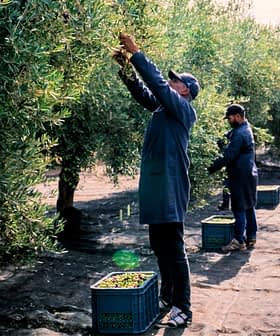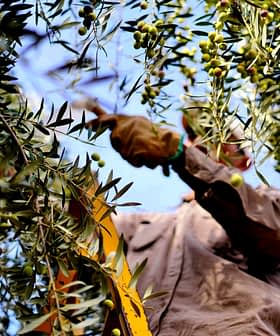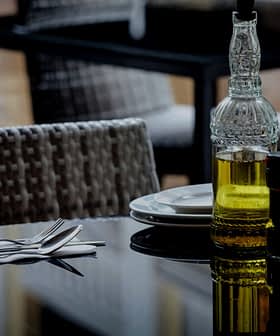Quest for Quality Behind an Israeli Producer's Award-Winning Results
On the banks of the Jordan River the producers of KeremZait experiment and innovate to produce outstanding olive oils.
The Nahal Rosh Pina nature reserve in Israel’s Galilee region is home to KeremZait, a producer of high-quality olive oil that has won awards at the NYIOOC World Olive Oil Competition. The company, owned by Nimrod Azulay, has made significant investments in machinery and production processes to ensure top-quality oils, and is working to educate customers about the differences in olive oil quality to stand out in a competitive market.
Hikers exploring the waters-side trails of the Nahal Rosh Pina nature reserve will easily spot the extensive olive groves that spread over the banks of the Jordan River in the southern Hula Valley.
It is a unique but fragile environment in the northernmost reaches of Israel’s Galilee region, where human farming activities have struggled for generations to find a sustainable balance with nature.
You can now hear people in the streets talk about olive oil quality. It is becoming a popular item of discussion, just like what happened with premium wines a couple of decades ago.
In the valley that became Israel’s first natural park, wetlands, yellow crocuses, ancient olive trees, migratory birds, marsh animals and rare water plants cohabitate with historical and modern human farm settlements.
One of the world’s best olive oils comes from this diverse and eclectic landscape. Located on the outskirts of Mishmar HaYarden, overlooking the Jordan River, KeremZait earned two Gold Awards at the 2022 NYIOOC World Olive Oil Competition.
See Also:Producer ProfilesWhile the company focuses on combining modern technology with the most up-to-date agricultural best practices, its owners still feel a strong connection to the land, which has been home to olives, pistachios and oak trees for the past 15,000 years.
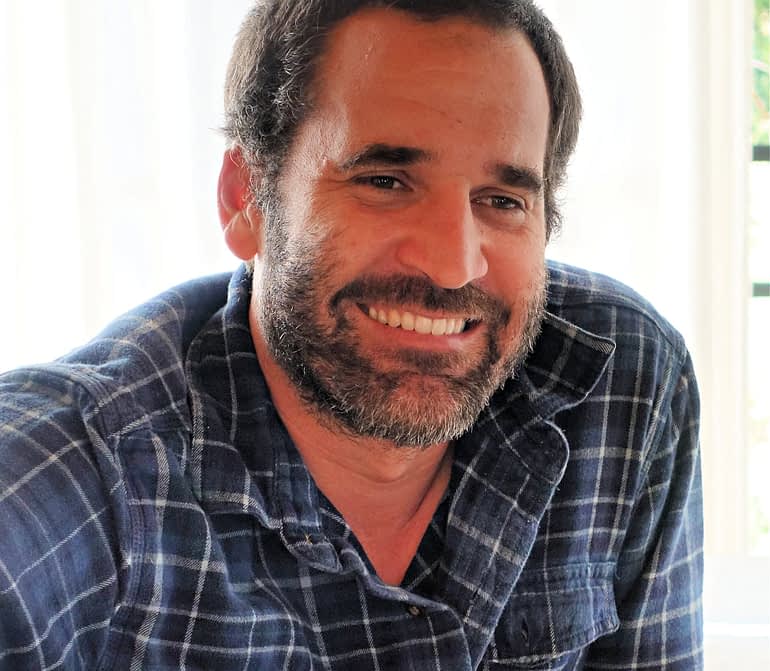
At that moment, temperatures began to rise, and glaciers that once covered the region started to retreat. In the following millennia, olive trees became a steady source of fuel and food for local populations.
“It is a great honor to be named one of the biggest names in the olive oil industry,” Nimrod Azulay, KeremZait’s co-owner in charge of production and commercialization, told Olive Oil Times.
“It is the confirmation of the choices we made with our end-to-end process, which goes from olive growing to pressing and marketing,” he added.
Azulay’s family has grown peaches in the area for many years, and in 2010 they decided to diversify and invest in olive growing. The family expanded their orchards, planting 3,000 olive trees of nine different varieties.
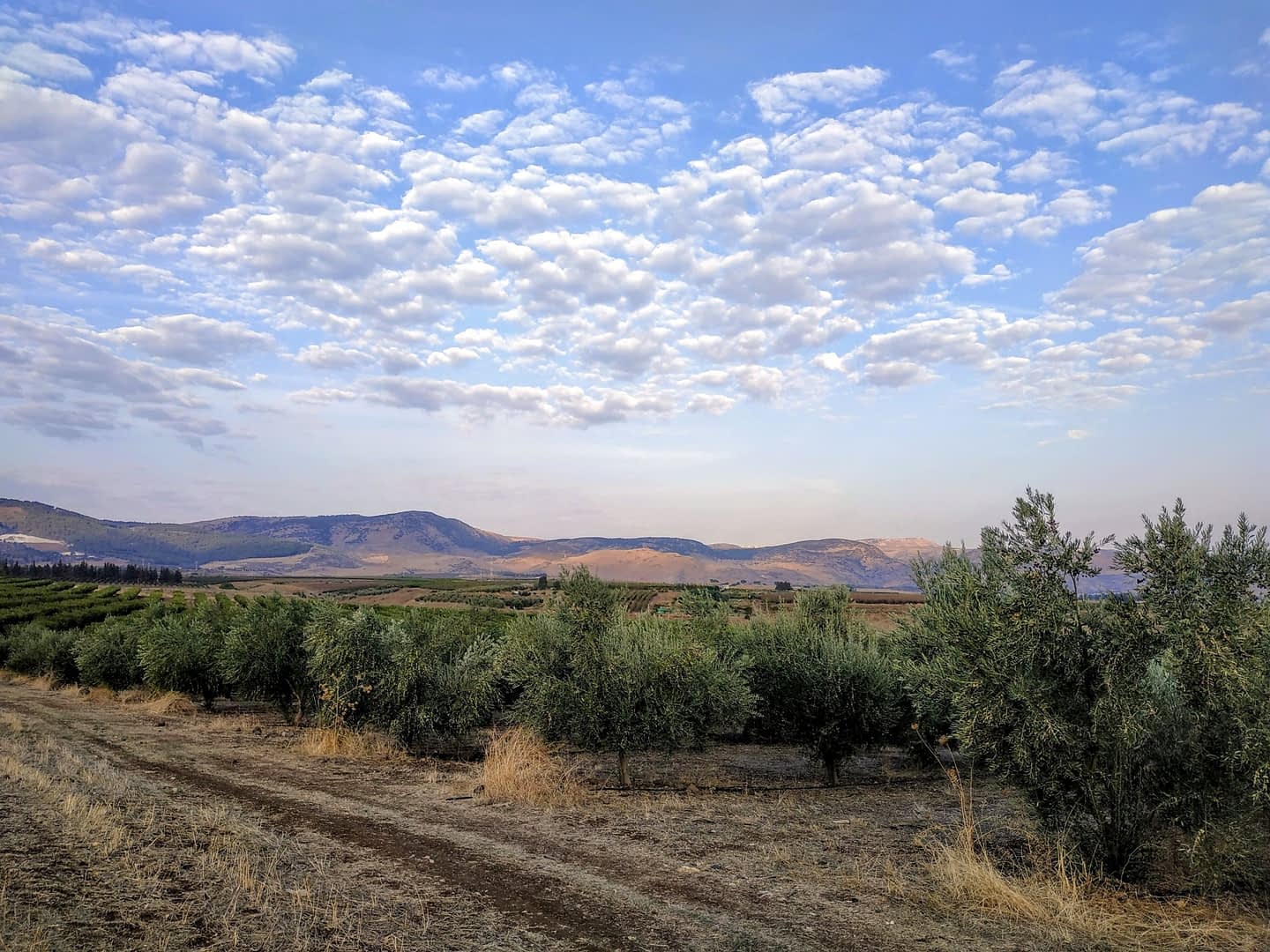
KeremZait
“It has been a full-time job since then,” Azulay said. “Even if, at first, it was all different. We started enthusiastically, growing olives and producing our first olive oil.”
We thought it was excellent, as probably happens to all growers when they produce their first extra virgin olive oils,” he added. “But I was getting deeper into olive farming. I took specialized classes on how to grow olives and how to produce high-quality extra virgin olive oil. So I understood that what we were doing was just plain wrong.”
As a result of the classes, Azulay overhauled his harvesting and production process with a novel approach to pruning, better knowledge of the ripening process, a comprehensive strategy for protecting the trees from pests and pathogens and best practices for nurturing both the trees and the soil.
“That is how we started over again, learning from our mistakes,” Azulay said. “Over time, we realized how relevant the role of the olive oil mill is, so about five years ago, we invested in a Pieralisi modern mill capable of managing up to half a ton of olives per hour.”
Managing 3,000 trees and aiming for high-quality production led Azulay’s family to make new investments in machinery to help speed up the olive harvest, a crucial moment for producers.
“We understood how relevant it was to reduce as much as we could the time between the moment we harvest our olives from the trees and the moment we process them,” Azulay said. “So we purchased a harvesting machine and we re-organized our work. Today, our olives are transformed less than two hours after harvest.”
After making these investments and improvements, the family decided to measure their progress and entered their oils in a few local competitions.
“After those good results, I decided to enter an international competition,” Azulay said. “We are so happy with the 2022 NYIOOC awards because we put such an effort into the quality of our extra virgin olive oil.”
“We are not making blends, we stick to monovarietal extra virgin olive oils,” he added.
While KeremZait earned its Gold Awards for their Coratina and Moresca monovarietals, their Picholine sample did not receive an award this time, the producer told Olive Oil Times.
“I thought it was very good as well but, of course, it is a work in progress,” Azulay said, indicating that he would use the results to further improve the production process.
“One of the reasons to work in that direction is that the market is crowded. There is a lot of competition,” he said. “Which is a good thing, but you want to stay in the front.”
The company focuses its commercialization efforts on the internal Israeli market.
“It is heavily characterized by imported extra virgin olive oil which represents the greatest share of olive oil that can be found here,” Azulay said. “There’s very cheap olive oil on the stores’ shelves, so there is fierce competition.”
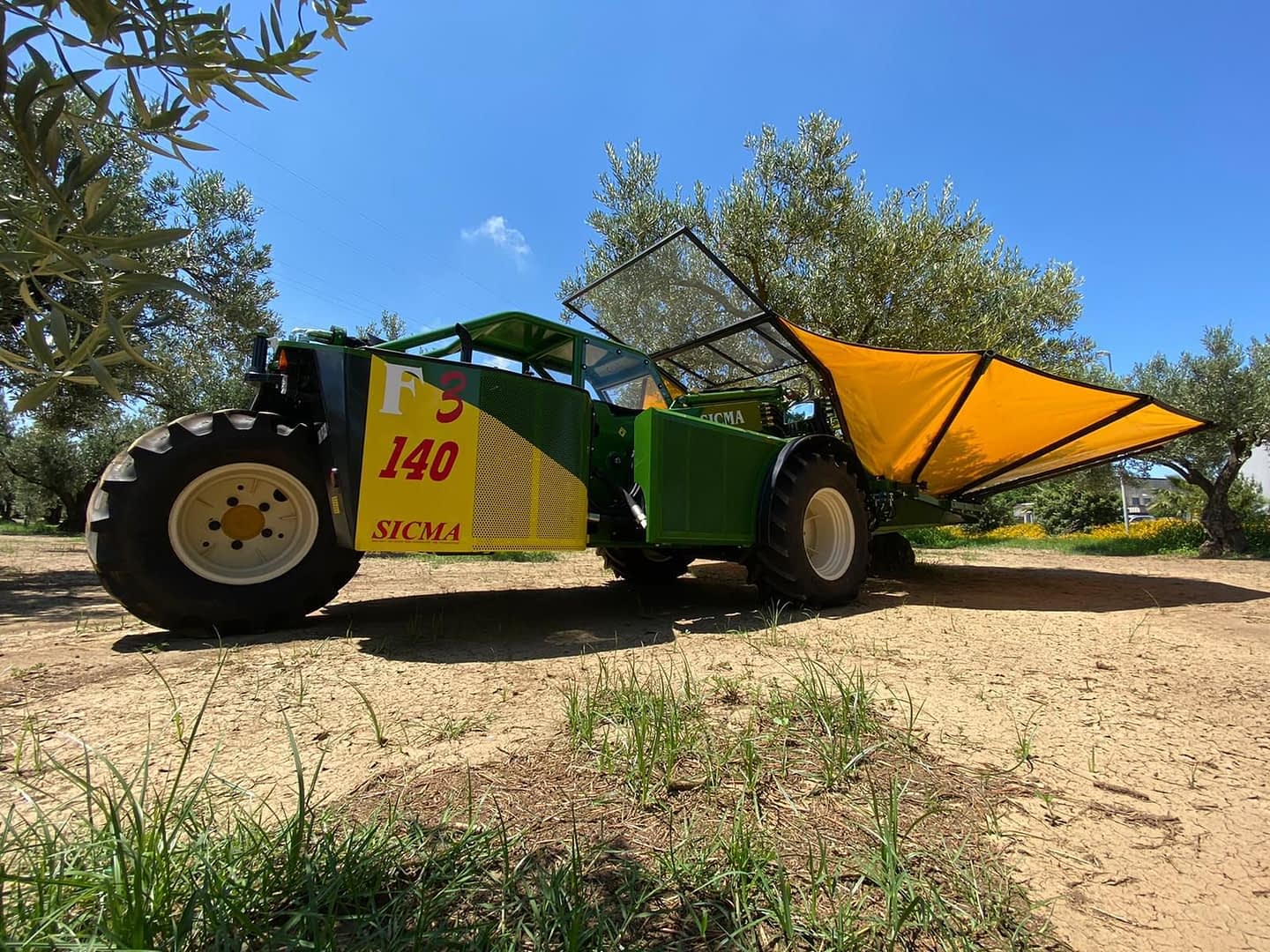
KeremZait
“To sell high-quality extra virgin olive oils, you have to teach customers what is good olive oil, where is the difference between a lower quality extra virgin olive oil and a high-end product,” he added.
Olive oil culture in many countries is still lagging and customers are often unaware of the vast differences in terms of health benefits and flavors among the different categories of olive oil.
“They purchase what they believe is good,” Azulay said. “Still, the olive oil culture here is growing, and awareness is growing among customers. In very small steps, it is happening.”
“What I have seen happening many times when customers buy high-quality extra virgin olive oils, they will always say that they never tasted anything like this,” he added. “Once they taste our olive oils, they find it easier to grasp the quality difference between ours and the one they used to buy.”
Another helping hand for high-end producers and olive oil culture, Azulay noted, comes from the fact that “most customers, once they taste high-quality extra virgin olive oil, do not want to go back to the previous quality they were used to.”
“It is very rare for someone to adapt to that change once you have tasted such quality products,” he added.
Azulay has also observed how a growing number of people are looking to small-scale producers to buy their extra virgin olive oils, as their awareness is growing.
“You can now hear people in the streets talk about olive oil quality. It is becoming a popular item of discussion, just like what happened with premium wines a couple of decades ago,” he concluded.
Share this article


